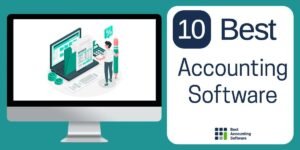Unveiling the Essentials: A Comprehensive Guide to Accounting Software
With digital transformation at the forefront of modern business operations, knowing the essentials of accounting software is now more critical than ever. By the end of this comprehensive guide, you’ll be well-versed in the functions, benefits, and best practices of using accounting software for your business.
What is Accounting Software?
Accounting software is a type of application software that records and processes accounting transactions within functional modules such as accounts payable, accounts receivable, journal, general ledger, payroll, and trial balance. It functions as an accounting information system that simplifies business finance management, ensures accuracy, and saves time.
Benefits of Accounting Software
- Accuracy: Accounting software eradicates the possibility of human error that generally occurs during manual calculations.
- Speed: Automated calculations are significantly faster than manual ones.
- Real-time Reporting: These platforms can generate reports instantly, providing insight into business performance.
- Data Access: Cloud-based software allows for remote data access.
Key Features to Look For
| Feature | Description |
|---|---|
| Usability | The software should have an easy-to-navigate interface and should require minimal training to use. |
| Integration | It should easily integrate with other business tools you’re using, like CRM software or point of sale systems. |
| Scalability | As your business grows, the software should be able to accommodate the increased workload. |
| Customer Support | Choose software providers that offer robust customer support, especially during the initial implementation phase. |
Popular Accounting Software to Consider
Given their functionality and ease of use, QuickBooks, Xero, and Zoho Books are among the top picks for small to medium-sized enterprises (SMEs). Larger organizations may opt for more robust solutions like Oracle NetSuite or SAP.
Case Study: Implementing Accounting Software
Consider the example of a small business that implemented QuickBooks to handle its accounting needs. The software automated invoicing, bookkeeping, and reporting processes. As a result, the business saved significant time, reduced errors, and gained valuable insights into its financial health.
Practical Tips for Implementation
When implementing accounting software, it’s crucial to train your team adequately and be patient with the transition period. You should also ensure regular data backups and keep your software updated to leverage the latest features and security updates.
Conclusion
Investing in the right accounting software can revolutionize your business operations, offering improved accuracy, efficiency, and financial insights. Therefore, understanding the essentials of these tools and implementing them wisely can significantly boost your business success.



